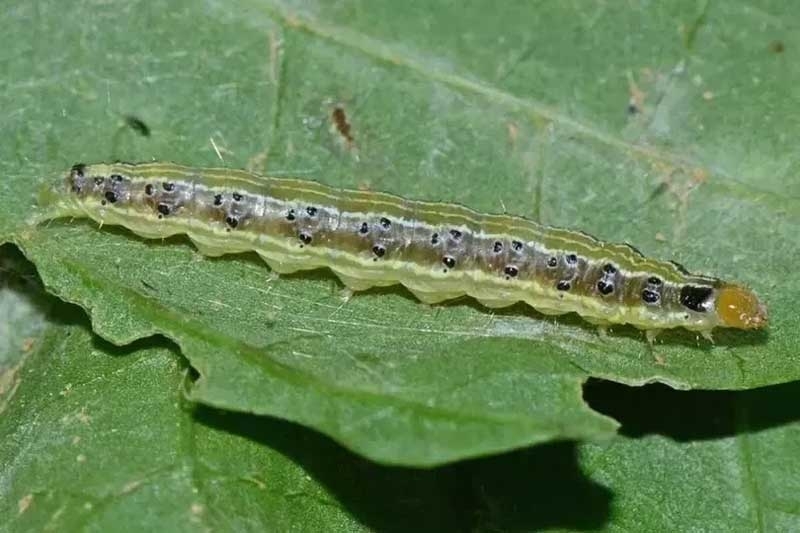Leaf webber pests threaten mango, guava, and litchi orchards

Patna: Leaf webber pests are nemeses for fruit orchards, particularly mango, guava, and litchi trees. The pest is better known as Orthaga euadrusalis; earlier, farmers didn’t pay much attention regarding the pests. Currently, it has created a severe problem across the country. The pest remains active, especially from July to December, creating a lot of issues for the farmers and damaging the trees as well.
This category of pests lays eggs on leaves, and after some weeks, the larvae hatch and start eating leaf tissues. Gradually, they mature, and then their appearance can be seen on the leaves; eating them led to harming the trees. It damages poorly maintained orchards, where pruning and maintenance don’t take place regularly.
Also Read: National conference on flower farming solutions, held in Karnal
A comprehensive method is required to control the leaf webber. Regular spraying of pesticide, pruning, and watering the plant is essential. If attention is not paid seriously, then the larvae will damage the leaves, which later damage the entire tree, resulting in a low yield.
To effectively manage leaf webbers, it is advisable to identify the specific species affecting mango, guava, or litchi trees, as different species may vary in behavior and life cycle. Common signs of infection include silky webs on leaves and leaf drop. Small green caterpillars are often found within these webs, indicating the presence of leaf webber pests.
To control the pests, it is necessary for farmers to check their orchards minutely and implement control measures as soon as possible. It is better to consult some experts, because they will advise better how to use pesticides and measures so that farmers can avoid the leaf webber pests.


